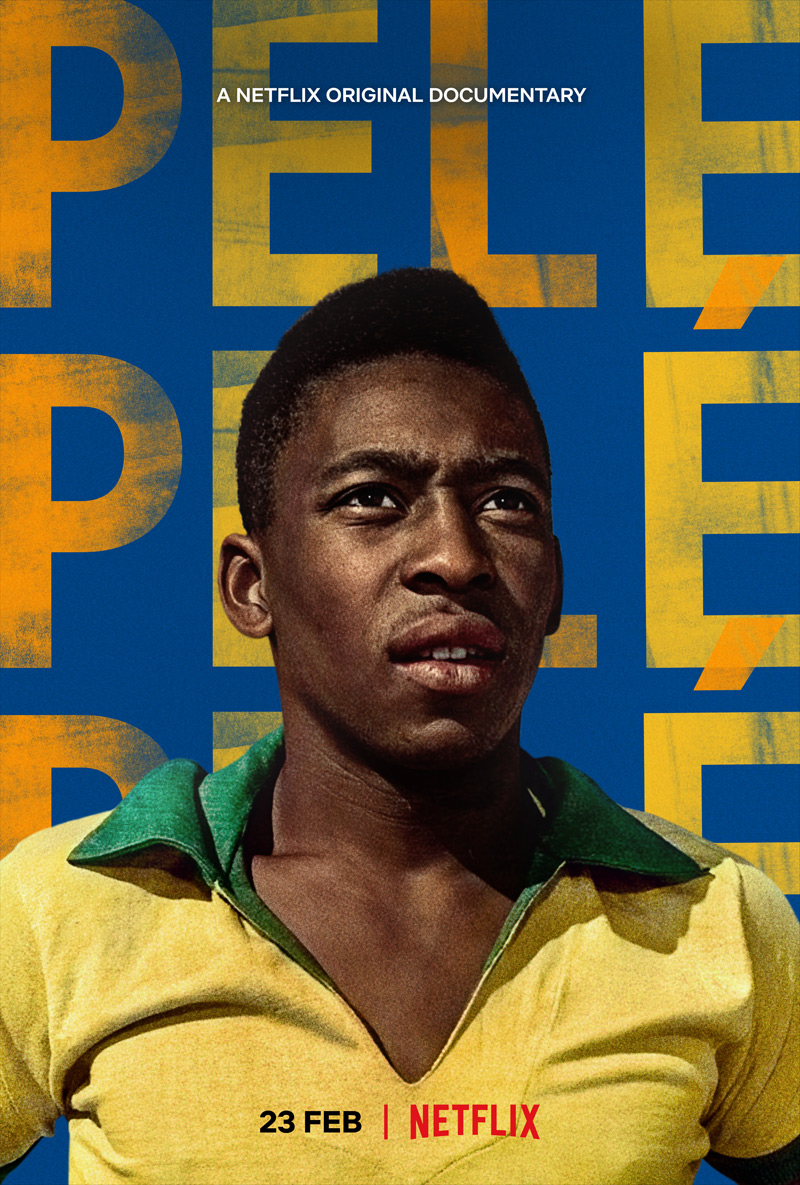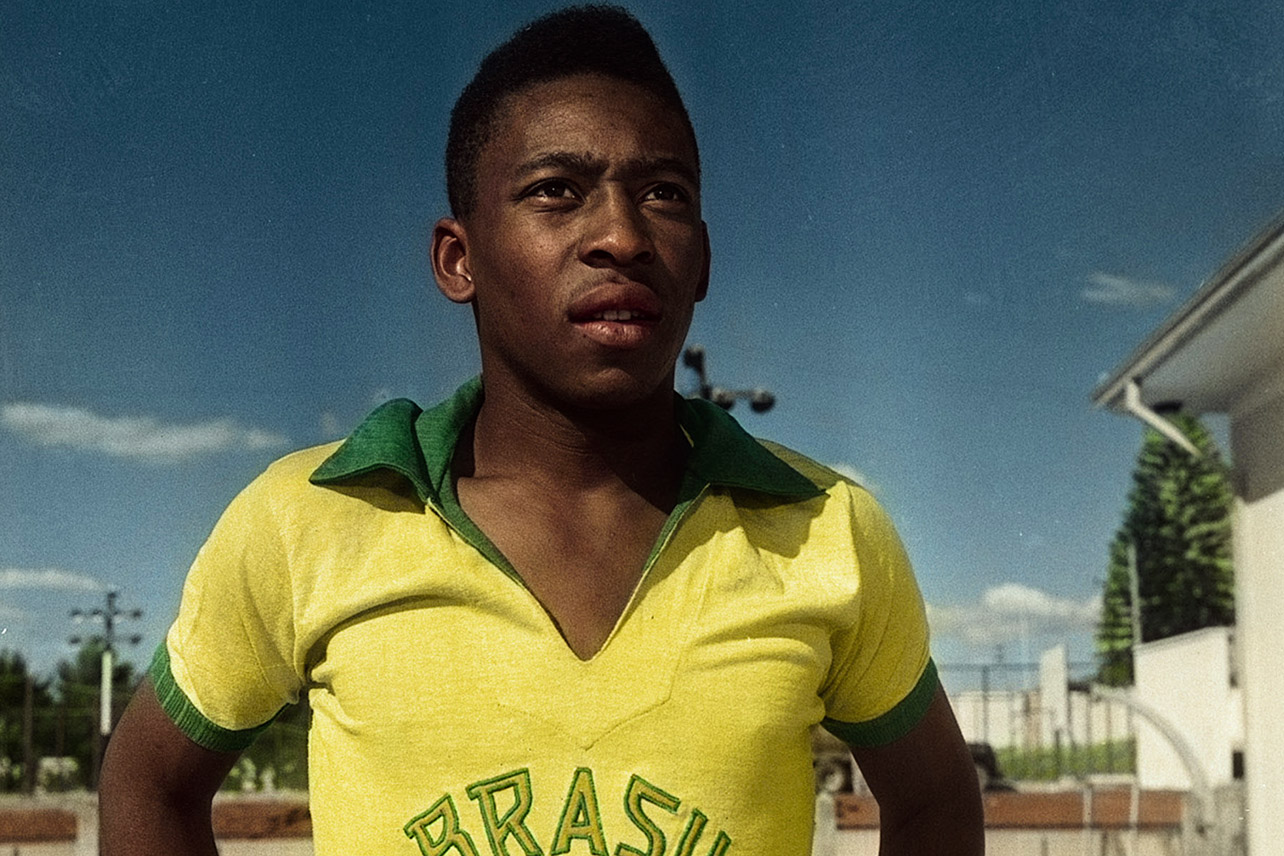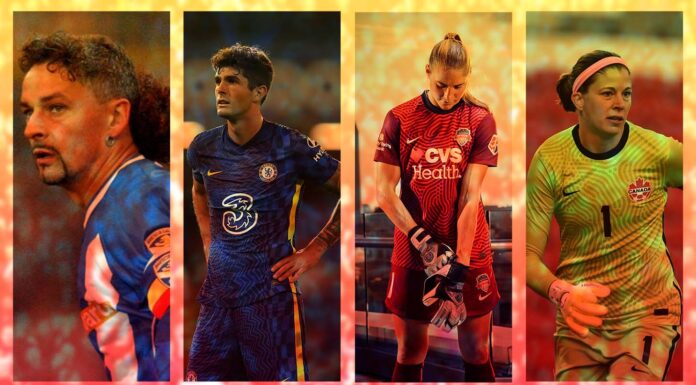Both celebratory and introspective, the Netflix Pelé documentary offers unique context behind an oft-discussed soccer icon.
Everyone knows who Pelé is. But his eponymous documentary that hit Netflix last week gives us a more personal look at the legend, and even a Brazilian history lesson. It’s not the first documentary centered around Pelé and certainly won’t be the last, but its political focus makes it stand out from its predecessors and most likely its successors.
There are two storylines in this film, and what it does really well is give viewers (especially this white guy from Seattle) more context of where Brazil was culturally throughout Pelé’s career.
The film opens with his last World Cup appearance, the 1970 edition in Mexico, and despite the fact that Brazil wins this tournament, the voiceover we hear is from TV and radio announcers talking about how Pelé doesn’t look the same. Then it cuts to Pelé himself saying that he didn’t want to be Pelé anymore at that point of his career.
A man known for his smile and beautiful work with his feet spends the majority of the film talking about nearly everything else. Pelé celebrates a hero, but it also wants to make sure you understand what made him and what he did for a country we all now associate with the beautiful game.

Despite the heavy topics, no one shies away from them, albeit some answers are more satisfying than others. In response to if a specific and notorious law was used by the Brazilian dictatorship of the time to torture civilians, the politician who signed the law had a simple one-word answer — “Obviously.” Even Pelé admits he would be lying if he said he didn’t know the state was torturing its citizens.
Cross cut with his highlights for Santos and the meaning changes. Pelé was the only source of positivity for many in Brazil. As someone born in 1990, I didn’t think it was possible to hear Brazilians say there was a time when soccer wasn’t a part of their country’s identity, and this film is ultimately about that very transformation.
In a stark comparison to The Last Dance, we don’t see these sport icons in their mansions, perfectly groomed with jewelry. Pelé reminisces with his old teammates and coaches in a backyard with a poorly kept pool. One teammate is interviewed in a empty barbershop, and another in an old locker room that hasn’t been painted for years, whose wood lockers are falling apart. It’s authentic, it’s powerful.
It’s old friends catching up, not a massive, carefully controlled production. They laugh and make fun of how poorly Pelé sings. Granted Pelé and his teammates are older than the Bulls team of the ’90s but there’s a reason Michael Jordan required creative control over The Last Dance, whereas Pelé was asked how much he knew about the torture happening in his home country.
Now how truthful was Pelé’s answer? You’ll have to watch and come to your own conclusion.

Another thing the film does that is particularly enjoyable is switching between different quality of recordings when showing highlights. Seeing Pelé volley a shot in grainy black and white film is special, and it then gives more power to the color slow-mo footage the filmmakers had access to from World Cups later in his career. Pelé brought Brazil forward culturally and to see a similar transformation in recording technology during his career added a nice touch.
This film won’t be everyone’s favorite — we do see Pelé play throughout the film, but if you’re looking for simply a celebration of just the player this isn’t it. Seeing a crowd go wild in celebration of a national hero hits different after hearing about the dictatorship and torture happening at the same time. I also think that knowing who Pelé the player is will greatly enhance your ability to understand the connections the film is trying to make. This is a fan’s film. Watch it to learn about the human Pelé is, the history Brazil has, and the lessons sports can teach us about our society to inspire us to create a better, more equitable future for everyone.
Stream Pelé now via Netflix.








